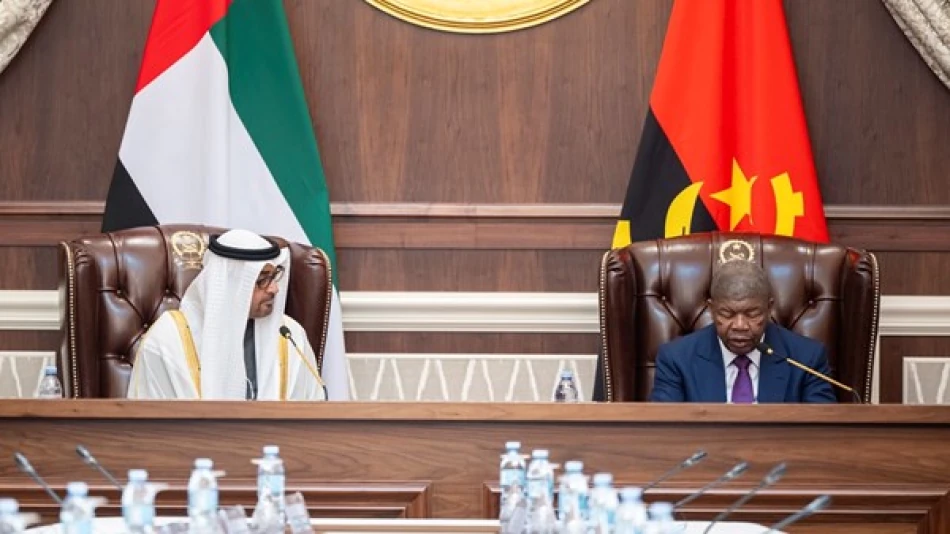
UAE President Reaffirms Commitment to Strengthening Ties with Angola
UAE Seals Major Economic Partnership with Angola as Gulf States Pivot to Africa
The United Arab Emirates has signed a comprehensive economic partnership agreement with Angola, marking another strategic move in the Gulf nation's aggressive expansion into African markets. The deal, announced during a high-level meeting between UAE President Sheikh Mohammed bin Zayed Al Nahyan and Angolan President João Manuel Lourenço in Luanda, signals the UAE's commitment to diversifying its economic partnerships beyond traditional Western and Asian markets.
Strategic Timing Amid Global Economic Shifts
This partnership comes at a critical juncture as Gulf states increasingly view Africa as the next frontier for economic growth. With Africa's population expected to double by 2050 and its middle class rapidly expanding, the UAE is positioning itself as a key gateway between African markets and global trade networks.
The timing is particularly significant given Angola's recent economic reforms and efforts to reduce its dependence on oil exports. As Africa's second-largest oil producer, Angola shares similar economic diversification challenges with the UAE, making this partnership mutually beneficial for both nations seeking to broaden their economic bases.
What the Partnership Means for Investors
Trade and Investment Opportunities
The comprehensive economic partnership is expected to facilitate increased bilateral trade, which currently stands at relatively modest levels compared to the UAE's trade relationships with other African nations like South Africa and Nigeria. For investors, this agreement opens new channels in sectors ranging from renewable energy and infrastructure to financial services and technology.
Angola's vast mineral resources, including diamonds, iron ore, and rare earth elements, present attractive opportunities for UAE-based sovereign wealth funds and private investors. Meanwhile, Angolan businesses gain access to the UAE's sophisticated financial markets and its role as a regional hub for international commerce.
Infrastructure and Development Focus
The partnership aligns with the UAE's proven strategy of combining trade agreements with substantial infrastructure investments. Similar approaches in countries like Egypt and Kenya have yielded significant returns while establishing long-term economic relationships that extend beyond simple commodity trading.
Regional Competition and Comparisons
This move puts the UAE ahead of regional competitors in the race for African market access. While Saudi Arabia has focused heavily on East African partnerships, particularly with Ethiopia and Sudan, the UAE's expansion into Central and Southern Africa through Angola provides strategic diversification.
The partnership also reflects lessons learned from China's Belt and Road Initiative in Africa. Unlike some Chinese investments that have faced criticism for creating debt burdens, the UAE's approach emphasizes mutual development and shared prosperity, potentially offering a more sustainable model for South-South cooperation.
Long-term Economic Implications
For global markets, this partnership represents the continuing shift toward multipolarity in international trade relationships. As traditional Western-African economic ties face scrutiny, Gulf states are emerging as alternative partners offering capital, expertise, and market access without the political conditions often associated with Western development aid.
The success of this UAE-Angola partnership could serve as a template for similar agreements across the continent, potentially reshaping Africa's economic landscape and reducing its historical dependence on European and American markets. For businesses and investors, this signals the importance of understanding and engaging with these emerging South-South economic corridors that are likely to define the next decade of global trade.
Most Viewed News

 Layla Al Mansoori
Layla Al Mansoori






